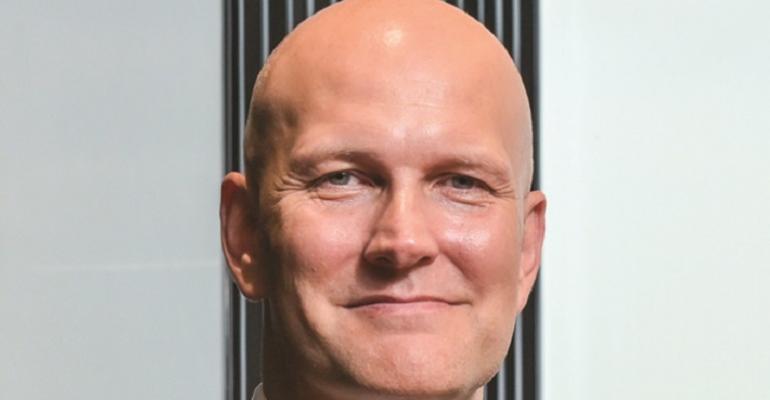Recently Seatrade Maritime News sat down with Thomas Knudsen, Managing Director of Toll Group, to see how the global logistics provider is tackling the issue of reducing emissions across the supply chain.
Looking at the big picture Knudsen explained: “I think actually, the problem we have today is everybody's talking about it, net zero by 2050. We don't have 30 years to fix this. We have got to start getting things done within the next three to five years to address this. So, I think there's some hurdles that we need to cross sooner rather than later.”
Knudsen believes current high fuel costs make the business case to switch alternative fuels easier to justify as makes the need to reduce consumption very clear.
“For instance, if you look at business cases, for installing solar at our sites, that business case is getting better because the fuel price and energy prices are going up. The business case for transition to electric trucks and electric cars is getting easier, because even if energy prices are going up, they are relatively less impacted in fuel prices,” he explained.
Knudsen noted that governments in some of the markets where it operates such as Australia and Singapore were starting to offer more subsidies to help make this switch.
The transition to electric vehicles has proved easier for the smaller vehicles rather than long haul trucks. Some 90% of Toll’s forklift trucks are electric and is aiming at getting that number to 100%. It is in the process of shifting to electric vehicles (EVs) for its smaller trucks used for last mile delivery.
This is a switch that is expected to take 12 – 18 months, although ironically it is being delayed by issues with the supply chain that have slowed down vehicle production. Knudsen explains while they have ordered EVs deliveries are delayed as manufacturers are facing a shortage of semi-conductors and other parts.
For longer haul trucking there are issues around both fuel availability and infrastructure with electric and hydrogen seen as the future fuels.
He notes a lack of large-scale electric trucks that can move long distances, and even if they were available the charging infrastructure doesn’t exist at present to support them in countries such as Australia where Toll would deploy them.
For hydrogen, which is at an earlier stage of development, the situation is more extreme. “We don't have hydrogen trucks. Even if I paid a million dollars I couldn't get a hydrogen truck for two years,” Knudsen commented.
“So that's what's holding back change in short term, that even if people want to, the infrastructure or the vehicles are just not available.”
Knudsen said a lot of customers are asking what they can do in the short-to-medium-term and most are realistic and understand it will take time. It will likely be a lot of smaller measures that individually reduce emissions by 2% or 3%, but if you implement five such initiatives start to make a real impact.
Copyright © 2024. All rights reserved. Seatrade, a trading name of Informa Markets (UK) Limited.
Add Seatrade Maritime News to your Google News feed.  |

